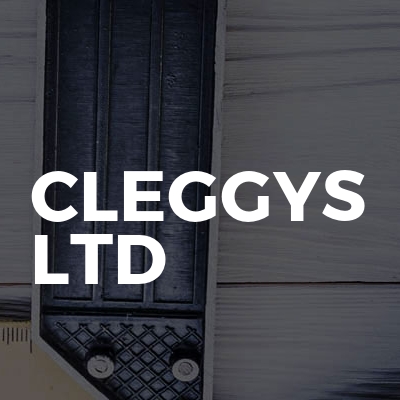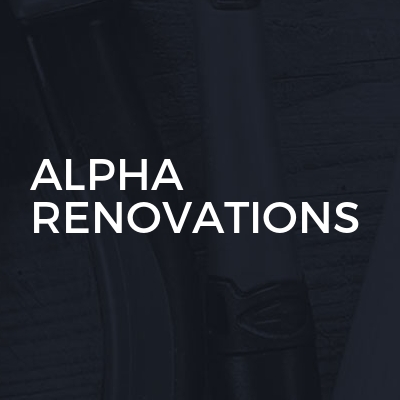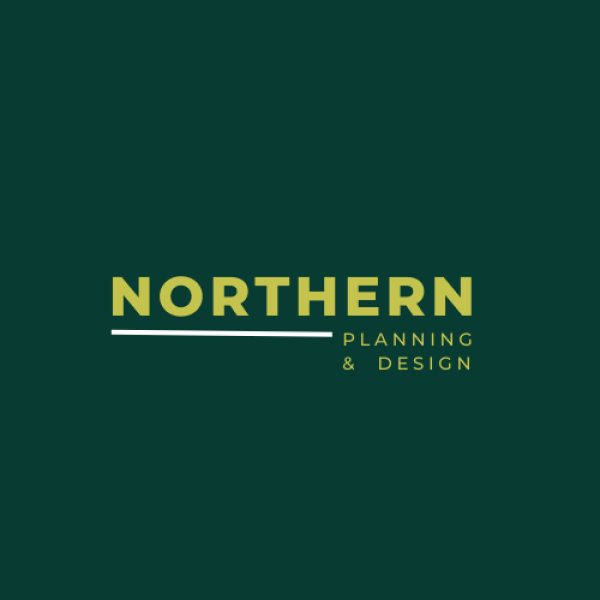Loft Conversions in Leeds
Welcome to Evolve Interiors Limited, your go-to experts for all things construction and refurbishment in Cleckheaton and across West York... read more »
Tailored Contractors Ltd: Your Trusted Tradespeople in Featherstone, West Yorkshire
Discover the exceptional servi... read more »
Welcome to LW Roofing Building Ltd, your trusted partner for all roofing and building needs in Grove Town and across West Yorkshire. As a... read more »
Welcome to Boardwalk Construction Ltd, your premier choice for construction services in Pellon and throughout West Yorkshire. As a distin... read more »
Triton Building Service Ltd is your go-to expert for all things construction in the heart of Cleckheatonread more »
Welcome to Dream Projects North Limited, your trusted building company based in the heart of Halifax, West York... read more »
Awan Property Services is a reputable business based in the vibrant area of Burmantofts, offering a wide range of expert... read more »
Welcome to MD Roofing and Building Ltd, your premier choice for builders, roofers, bathroom fitters, kitchen fitters, renovations, extens... read more »
Welcome to J&S Building & Roofing, your premier choice for builders, extension builders, roofers, bathroom fitters, and loft conversions... read more »
Welcome to GSM Design & Development LTD, your go-to experts for all building and landscaping needs in Denholme Clough and across West Yor... read more »
Welcome to Anchor Construction Group Ltd, your trusted experts for all construction and renov... read more »
SKB Contractors LTD is a distinguished construction company nestled in the heart of Little Horton, offe... read more »
Welcome to JK Home Renovations, your premier choice for expert tradespeople services in Far Royds and across West Yorkshire. Specialising... read more »
Welcome to Everarch Construction Ltd, your premier choice for Builders, Extension Builders, Renovations, Carpenters, and Driveway Contrac... read more »
Cleggys Ltd: Your Trusted Tradespeople in Thornhill, West Yorkshire
Welcome to Cleggys Ltd, your go-to experts f... read more »
Welcome to Alpha Renovations, your trusted partner for all your building and renovation needs in Guiseley and across West Yorkshire. As a... read more »
Welcome to Northern Planning & Design, your go-to experts for all things building and design in... read more »
Welcome to S... read more »
Welcome to S & L Property Services (Leeds) Ltd, your... read more »
Full Circle Construction: Your Premier Trades... read more »
Search Loft Conversions in places nearby
- Loft Conversions in Bradford
- Loft Conversions in Wakefield
- Loft Conversions in Baildon
- Loft Conversions in Batley
- Loft Conversions in Bingley
- Loft Conversions in Brighouse
- Loft Conversions in Castleford
- Loft Conversions in Cleckheaton
- Loft Conversions in Dewsbury
- Loft Conversions in Elland
- Loft Conversions in Featherstone
- Loft Conversions in Garforth
- Loft Conversions in Guiseley
- Loft Conversions in Halifax
- Loft Conversions in Hebden Bridge
- Loft Conversions in Heckmondwike
- Loft Conversions in Hemsworth
- Loft Conversions in Holmfirth
- Loft Conversions in Horbury
- Loft Conversions in Horsforth
- Loft Conversions in Huddersfield
- Loft Conversions in Ilkley
- Loft Conversions in Keighley
- Loft Conversions in Knottingley
- Loft Conversions in Liversedge
- Loft Conversions in Mirfield
- Loft Conversions in Morley
- Loft Conversions in Normanton
- Loft Conversions in Ossett
- Loft Conversions in Otley
- Loft Conversions in Pontefract
- Loft Conversions in Pudsey
- Loft Conversions in Queensbury
- Loft Conversions in Rothwell
- Loft Conversions in Shipley
- Loft Conversions in Silsden
- Loft Conversions in Sowerby Bridge
- Loft Conversions in Todmorden
- Loft Conversions in Wetherby
- Loft Conversions in Yeadon
Introduction to Loft Conversions in Leeds
Loft conversions in Leeds have become a popular choice for homeowners looking to maximise their living space without the hassle of moving. With the city's rich history and diverse architecture, converting an attic into a functional room can add significant value to a property. Whether you're dreaming of a new bedroom, office, or playroom, a loft conversion can be a cost-effective solution to meet your needs.
Understanding the Basics of Loft Conversions
Before diving into the specifics, it's essential to understand what a loft conversion entails. Essentially, it involves transforming an unused attic space into a usable room. This process can vary in complexity, depending on the existing structure and the desired outcome. In Leeds, where homes range from Victorian terraces to modern builds, the approach to a loft conversion can differ significantly.
Types of Loft Conversions
There are several types of loft conversions, each with its own set of benefits and considerations:
- Dormer Loft Conversion: This is one of the most common types, involving an extension that projects vertically from the existing roof slope. It provides additional headroom and floor space.
- Mansard Loft Conversion: Typically found in urban areas, this type involves altering the roof structure to create a flat roof with a back wall that slopes inwards.
- Hip to Gable Loft Conversion: Ideal for semi-detached or detached houses, this conversion extends the hip roof to create a vertical gable wall, increasing space.
- Velux Loft Conversion: The simplest and most cost-effective option, it involves installing roof windows to bring in natural light without altering the roof structure.
Benefits of Loft Conversions
Loft conversions offer numerous advantages, making them an attractive option for many homeowners in Leeds:
- Increased Property Value: A well-executed loft conversion can significantly boost the value of your home, often by more than the cost of the conversion itself.
- Additional Living Space: Whether you need an extra bedroom, office, or playroom, a loft conversion provides valuable additional space.
- Cost-Effective: Compared to the expenses and stress of moving, converting your loft is a more affordable way to gain extra space.
- Customisable: You can tailor the space to meet your specific needs and preferences, from layout to interior design.
Planning and Regulations for Loft Conversions in Leeds
Embarking on a loft conversion project requires careful planning and adherence to local regulations. Leeds City Council has specific guidelines that must be followed to ensure your conversion is legal and safe.
Planning Permission and Building Regulations
In many cases, loft conversions fall under permitted development rights, meaning you may not need planning permission. However, there are exceptions, particularly if your property is in a conservation area or is a listed building. It's crucial to check with the local planning authority to confirm the requirements for your specific situation.
Building Regulations
Regardless of whether planning permission is needed, all loft conversions must comply with building regulations. These regulations ensure the safety and structural integrity of the conversion. Key areas covered include:
- Structural Stability: The existing structure must be able to support the additional weight of the conversion.
- Fire Safety: Adequate fire escape routes and smoke alarms must be installed.
- Insulation: Proper insulation is required to meet energy efficiency standards.
- Sound Insulation: Measures must be taken to minimise noise between the loft and other parts of the house.
Working with Professionals
Given the complexity of loft conversions, it's advisable to work with experienced professionals. Architects, structural engineers, and builders can provide valuable insights and ensure your project complies with all necessary regulations. They can also help with the design and execution, making the process smoother and more efficient.
Design Considerations for Loft Conversions
Designing a loft conversion involves more than just deciding on the type of conversion. It's about creating a space that is functional, comfortable, and aesthetically pleasing.
Maximising Space and Light
One of the main challenges of loft conversions is making the most of the available space and light. Here are some tips to consider:
- Use Skylights: Installing skylights or roof windows can flood the space with natural light, making it feel larger and more inviting.
- Open Plan Design: Consider an open plan layout to maximise the sense of space and flexibility in how the room is used.
- Built-In Storage: Incorporate built-in storage solutions to make the most of awkward spaces and keep the room clutter-free.
Choosing the Right Materials
The materials you choose can have a significant impact on the look and feel of your loft conversion. Consider the following:
- Flooring: Opt for durable and easy-to-maintain flooring, such as laminate or engineered wood.
- Insulation: High-quality insulation is essential for comfort and energy efficiency.
- Decorative Elements: Use light colours and mirrors to enhance the sense of space and light.
Interior Design and Furnishing
Once the structural work is complete, it's time to focus on the interior design and furnishing. Consider the purpose of the room and choose furnishings that complement the space. For example, if it's a bedroom, invest in a comfortable bed and ample storage. If it's an office, ensure you have a functional desk and ergonomic chair.
Cost Considerations for Loft Conversions in Leeds
Understanding the costs involved in a loft conversion is crucial for budgeting and planning. While prices can vary widely, several factors will influence the overall cost of your project.
Factors Affecting Cost
Several elements can impact the cost of a loft conversion, including:
- Type of Conversion: More complex conversions, such as mansard or hip to gable, tend to be more expensive than simpler options like Velux conversions.
- Size and Complexity: Larger and more intricate designs will naturally cost more.
- Materials and Finishes: The quality of materials and finishes you choose will affect the overall cost.
- Labour Costs: Hiring experienced professionals can increase costs but ensures a high-quality finish.
Budgeting for Your Loft Conversion
Creating a detailed budget is essential for managing costs and avoiding unexpected expenses. Consider the following steps:
- Get Multiple Quotes: Obtain quotes from several contractors to compare prices and services.
- Include Contingency: Set aside a contingency fund for unforeseen expenses, typically around 10-15% of the total budget.
- Plan for Extras: Factor in additional costs for furnishings, decoration, and any necessary permits or fees.
Financing Options
If you're concerned about the upfront costs, there are several financing options available:
- Home Improvement Loans: Many banks and financial institutions offer loans specifically for home improvements.
- Remortgaging: Consider remortgaging your home to release equity for the conversion.
- Government Grants: Check if there are any local or national grants available for home improvements.
Finding the Right Loft Conversion Specialists in Leeds
Choosing the right professionals to carry out your loft conversion is crucial for ensuring a successful project. With numerous specialists in Leeds, it's important to find a team that meets your needs and expectations.
Researching Potential Contractors
Start by researching potential contractors and gathering recommendations from friends, family, or online reviews. Look for specialists with experience in loft conversions and a portfolio of completed projects.
Evaluating Experience and Expertise
When evaluating potential contractors, consider the following:
- Experience: How long have they been in business, and do they have experience with similar projects?
- Qualifications: Are they members of any professional bodies or associations?
- References: Can they provide references from previous clients?
Comparing Quotes and Services
Once you've shortlisted potential contractors, obtain detailed quotes and compare their services. Consider the following:
- Scope of Work: Ensure the quote includes all necessary work, from design to completion.
- Timeline: Discuss the expected timeline for the project and any potential delays.
- Warranty: Check if they offer any warranty or guarantee on their work.
Frequently Asked Questions About Loft Conversions in Leeds
- Do I need planning permission for a loft conversion in Leeds? In many cases, loft conversions fall under permitted development rights, but it's essential to check with the local planning authority.
- How long does a loft conversion take? The duration can vary depending on the complexity of the project, but most conversions take between 6 to 12 weeks.
- Will a loft conversion add value to my home? Yes, a well-executed loft conversion can significantly increase the value of your property.
- Can I live in my home during the conversion? In most cases, you can continue living in your home, but there may be some disruption during the construction phase.
- What is the average cost of a loft conversion in Leeds? Costs can vary widely, but on average, a loft conversion in Leeds can range from £20,000 to £50,000.
- How can I ensure my loft conversion is energy efficient? Proper insulation and energy-efficient windows are key to ensuring your loft conversion is energy efficient.
Final Thoughts on Loft Conversions in Leeds
Loft conversions in Leeds offer a fantastic opportunity to enhance your living space and increase the value of your home. By understanding the different types of conversions, planning carefully, and working with experienced professionals, you can create a beautiful and functional space that meets your needs. Whether you're looking to add an extra bedroom, office, or playroom, a loft conversion is a worthwhile investment that can transform your home.
Send a message






















